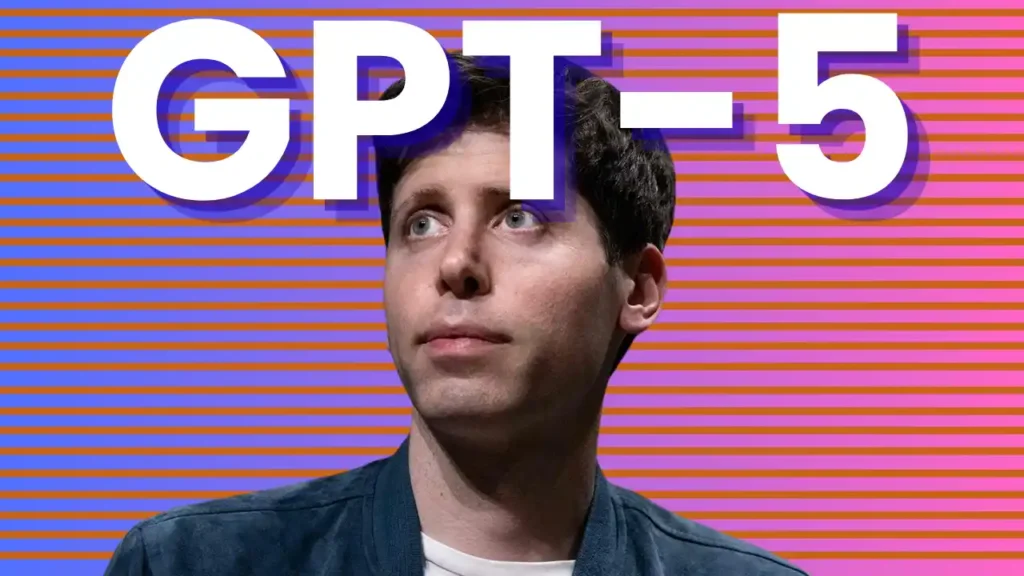Sam Altman Says GPT-5 Could Let Solo Founders Run Entire Startups
OpenAI CEO Sam Altman believes the company’s latest AI model, GPT-5, could redefine entrepreneurship — particularly for solo founders. Speaking on the podcast People by WTF with host Nikhil Kamath, Altman outlined how GPT-5’s capabilities could enable individuals, even working alone, to build and run an entire startup.
Altman emphasized that AI’s rapid progress means founders now have access to advanced tools that can streamline almost every stage of building a business. “A 25-year-old, anywhere in the world — even just alone or with a couple of friends — could now start a company and run it far more efficiently than ever before,” he said, highlighting India as an example of where such opportunities could thrive.
How GPT-5 Could Power a One-Person Startup
According to Altman, GPT-5 is not just a productivity enhancer but a potential all-in-one co-founder. The AI can assist with a broad range of essential startup tasks, including:
-
Customer Support – Handling inquiries, resolving issues, and managing feedback loops.
-
Marketing & Communications – Drafting and refining brand messaging, campaign plans, and social media content.
-
Legal Review – Analyzing contracts, identifying potential risks, and flagging compliance issues.
-
Product Development – Writing and optimizing software for core products, reducing development time.
By consolidating these capabilities into a single AI model, GPT-5 could significantly lower operational costs for small teams while improving output quality.
The New “Hard Skill” for the AI Era
When asked about the skills needed to use AI effectively — particularly in scientific and technical fields — Altman stressed that the most valuable asset is proficiency with AI tools themselves.
“This is like learning to code was for previous generations,” he said. “Now, getting really good at using AI tools is one of the most important hard skills you can have.”
Altman drew a distinction between being merely aware of AI and being “AI native” — someone who instinctively frames problems and solutions through the lens of these tools. “Fluency with the tools” is what separates the most effective adopters from the rest, he noted.
Global Accessibility and Opportunity
Altman’s comments also underscore a broader shift in the accessibility of entrepreneurship. With AI handling complex, time-consuming work, geographic barriers are less significant.
For aspiring founders in regions with limited access to large startup ecosystems, GPT-5 could act as both a mentor and a workforce. The model’s ability to generate ideas, write code, prepare legal drafts, and craft business strategies opens the door to innovation in places where startup infrastructure is still developing.
Implications for the Startup Ecosystem
If widely adopted, GPT-5 could change how startups are formed and operated:
-
Lower Capital Requirements – Fewer hires needed at early stages, reducing payroll and operational costs.
-
Faster Iteration Cycles – Ideas can move from concept to prototype in days rather than months.
-
Global Talent Distribution – Talent no longer needs to be clustered in traditional tech hubs.
However, this shift also raises questions about the evolving role of human labor in early-stage companies. As AI takes over tasks traditionally done by junior hires or outsourced teams, the structure of startups — and the job market — may look very different in the near future.
Looking Ahead
For solo founders and small teams, GPT-5 could be a game-changer, offering a level of capability that previously required large, well-funded teams. But success will still depend on one thing: the founder’s ability to use the tools effectively.
As Altman put it, mastering AI is no longer optional — it’s the new literacy for entrepreneurship. Those who become fluent in AI tools stand to gain the most from this technological leap, potentially launching high-impact companies from anywhere in the world.
Sources:

